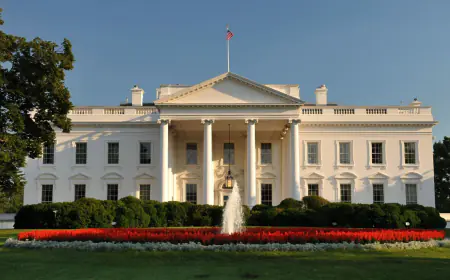13 of the top 25 new funds in 2024 are Bitcoin and Ether-focused
In 2024, Bitcoin and Ethereum-focused ETFs have surged in investor popularity and have climbed up the top 25 newly launched funds. Following the approval of the first spot Bitcoin ETFs, initial skepticism of the market has worn off. Bitcoin ETFs like iShares Bitcoin Trust (IBIT) and Fidelity Wise Origin Bitcoin Fund (FBTC) lead the category […]

In 2024, Bitcoin and Ethereum-focused ETFs have surged in investor popularity and have climbed up the top 25 newly launched funds. Following the approval of the first spot Bitcoin ETFs, initial skepticism of the market has worn off.
Bitcoin ETFs like iShares Bitcoin Trust (IBIT) and Fidelity Wise Origin Bitcoin Fund (FBTC) lead the category with billions in year-to-date fund flows. Ethereum ETFs have also gained momentum, adding to the growing demand.
Bitcoin funds are among the top 25 ETFs
Almost 9 months after the first spot Bitcoin ETFs were approved by the SEC, its demand was somewhat underestimated. According to Nate Geraci, co-founder of The ETF Institute, 525 ETFs were launched in 2024. Notably, 13 of the top 25 of these funds are Bitcoin or Ethereum-focused.
The 14th fund on the list is the MicroStrategy (MSTR) Option Strategy ETF, which has indirect exposure to Bitcoin through the company holdings. The executive also underlines that the top 4 ETFs are all spot Bitcoin ETFs and 5 of the top 7 funds are crypto-related.
Ethereum ETFs were approved in May and started trading in July, months after their Bitcoin peers. Both were expected to increase the demand of the asset class but skeptics believed otherwise. After a slowdown in fund flows, September concluded with positive inflows for the crypto funds. However, the trend reversed at the start of October.
According to the Coinglass dashboard, the top Bitcoin ETFs are iShares Bitcoin Trust (IBIT), Grayscale Bitcoin Trust (GBTC), Fidelity Wise Origin Bitcoin Fund (FBTC), and ARK 21Shares Bitcoin ETF (ARKB), with market caps starting from $22.40 billion at press time. Traditional ETFs are led by the SPDR S&P 500 ETF (SPY) and Invesco QQQ Trust (QQQ) with a larger market cap starting at $577 billion. However, these are not newly launched funds.
Meanwhile, the crypto community is pinning its hopes on the related ETFs for a larger purpose. Balaji Srinivasan, investor and former CTO of Coinbase, previously compared Bitcoin ETFs as the force behind the reversal of centralization. In an article published after the SEC approved the first set of spot ETFs, he drew a parallel between the US government’s actions during the 1930s. During the time under President Franklin D. Roosevelt (FDR), the government reportedly seized gold from citizens to centralize control over the economy. He described this as a move toward centralization, a precursor to the fiat money era. He argued that Bitcoin ETFs got the change reversed, as a centralized state is bowing to self-custodied Bitcoin.
Technology funds lead in sectoral AUM
According to the image shared by Geraci, IBIT has a year-to-date (YTD) fund flow of over $21.5 billion. Meanwhile, FBTC has a YTD of $9.8 billion and ARKB stands at $2.6 billion. iShares Ethereum Trust ETF (ETHA) and Fidelity Ethereum Fund ETF (FETH) lead in their category with respective YTD flows of $1.1 billion and $453.6 million. Top traditional bond and equity ETFs, like the PGIM Ultra Short Municipal Bond ETF (PUSH) and Global X Russell 2000 ETF, had lower YTD flows than Bitcoin-focused funds.

According to ETF data from ETFDB, sectoral rankings in the fund category are led by technology funds when it comes to AUM and fund flows. Tech has assets under management (AUM) of around $624 billion, followed by healthcare at a far second with around $100 billion. Tech dominates with the most ETFs with 164 funds in the category. But the sector is not the leader when it comes to returns. Real Estate ETFs lead with an average 3-month return percentage of 17%. At press time, tech is on the 10th slot.
What's Your Reaction?









































































































